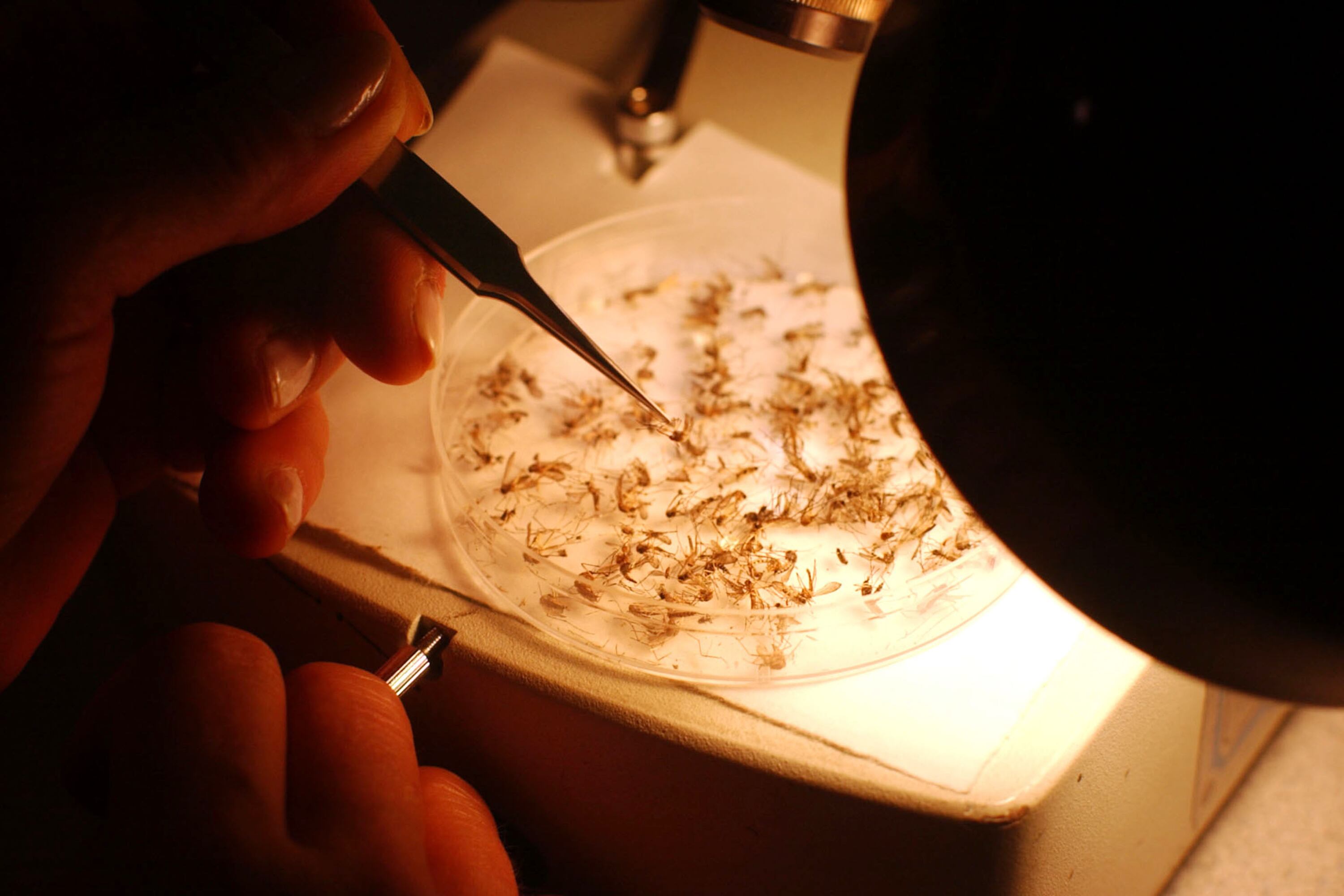Public health, explained: Sign up to receive Healthbeat’s free New York City newsletter here.
The first person to be diagnosed with eastern equine encephalitis in New York state in nearly a decade has died, Gov. Kathy Hochul’s office announced Monday.
The human case of the rare and often fatal mosquito-borne disease was confirmed in Ulster County on Friday. The Ulster County Department of Health is investigating the case, which is the first in the state since 2015.
State Health Commissioner Dr. James V. McDonald issued a Declaration of an Imminent Threat to Public Health on Monday, prompted by the discovery of EEE in multiple counties and the recent human case of the disease. The declaration, which runs through Nov. 30, enables the expanded use of state resources to address the mosquito-borne illness.
“Eastern equine encephalitis is different this year,” McDonald said in a statement. “While we normally see these mosquitoes in two to three counties each year, this year they have been in 15 counties so far, and scattered all over New York state. This life-threatening mosquito-borne disease has no commercially available human vaccine and must be taken seriously.”
Hochul offered her condolences to the family of the victim, who was not identified, in a statement and emphasized the measures her administration has taken to reduce the spread of EEE.
In addition to ongoing mosquito spraying, New York is making insect repellent available at state parks, posting signage about EEE in parks, campgrounds and trailheads, and working with local health departments to limit park hours during peak periods of mosquito activity, according to a press release.
At least 10 other human cases of EEE, across six states, have been reported in the United States this year, according to the Centers for Disease Control and Prevention. Massachusetts has reported four human cases; other cases have been reported in Vermont, New Hampshire, Rhode Island, New Jersey, and Wisconsin.
Only a handful of human cases of EEE have been reported in New York state since 1971. This year, 18 cases of the infection have been identified in horses across 12 counties in New York state, according to the Hochul administration. A case of EEE in a horse in Ulster County was confirmed in August.
EEE is spread through the bite of a mosquito infected with the virus to mammals, including horses and humans. Most people bitten by an infected mosquito do not develop symptoms, though severe cases can involve a sudden headache, high fever, chills, and vomiting. The illness can lead to disorientation, seizures, encephalitis, and coma.
There is no commercially available treatment or human vaccine for EEE. About a third of patients who develop EEE die, and many who survive experience neurological impairment, according to the state Health Department.
The risk of developing EEE is highest from late July through September, and people over the age of 50 and younger than 15 are the most vulnerable to developing severe disease.
The state Health Department urges residents to protect against mosquito bites, including by wearing long sleeves, pants and socks when outside, using insect repellent, securing screens in windows and doors, and eliminating standing water.
Eliza Fawcett is a reporter covering public health in New York City for Healthbeat. Contact Eliza at efawcett@healthbeat.org .







